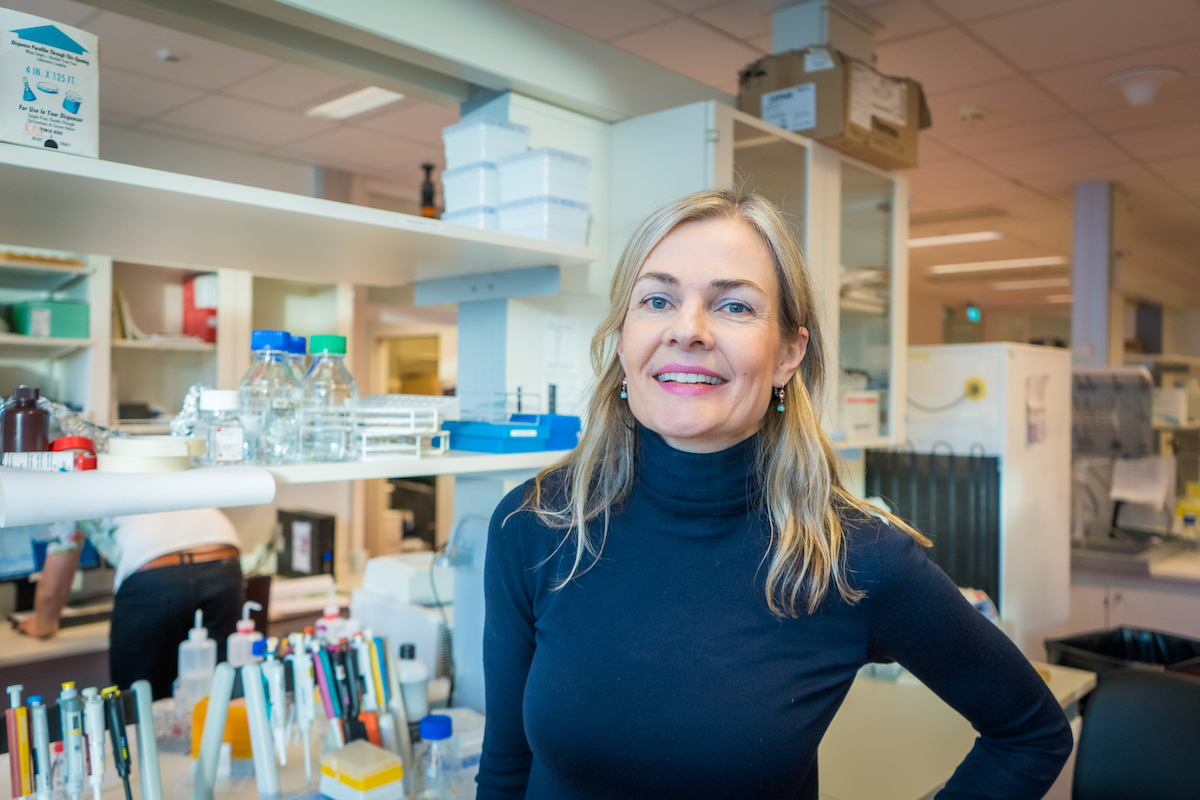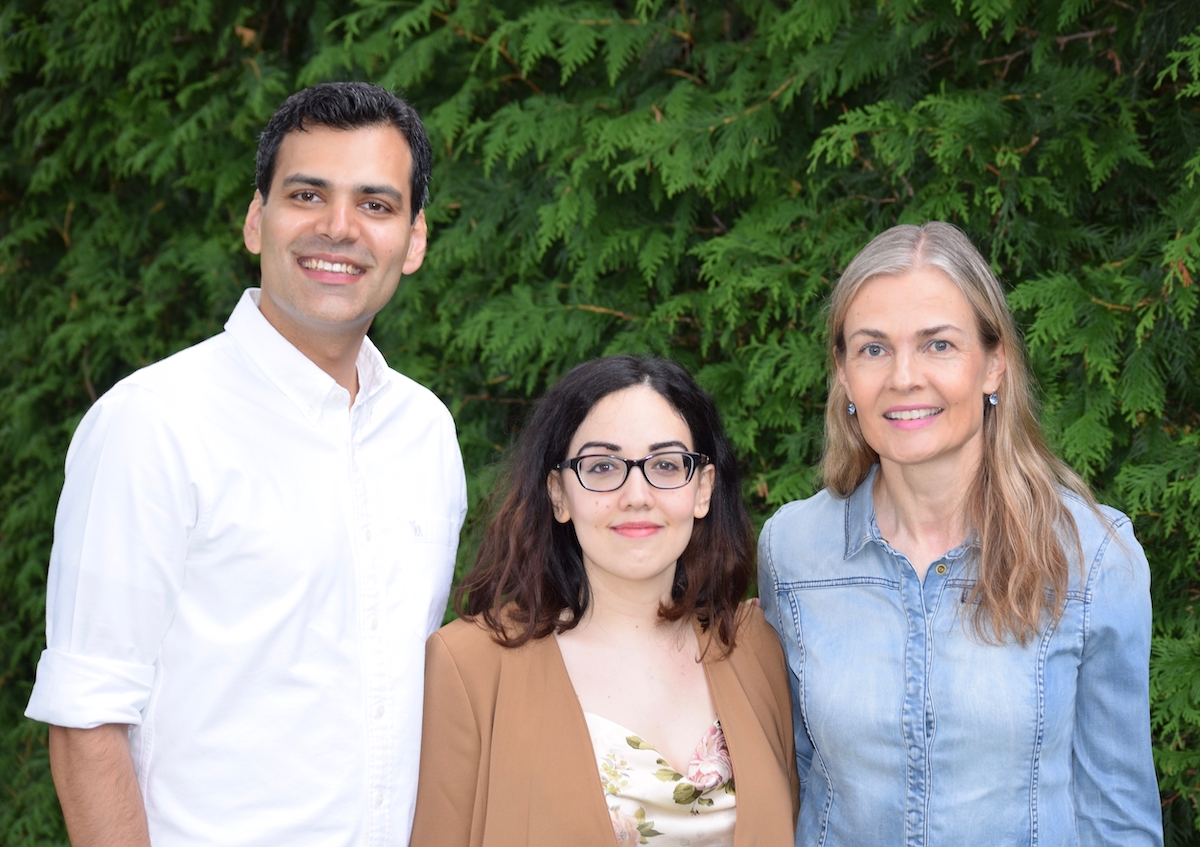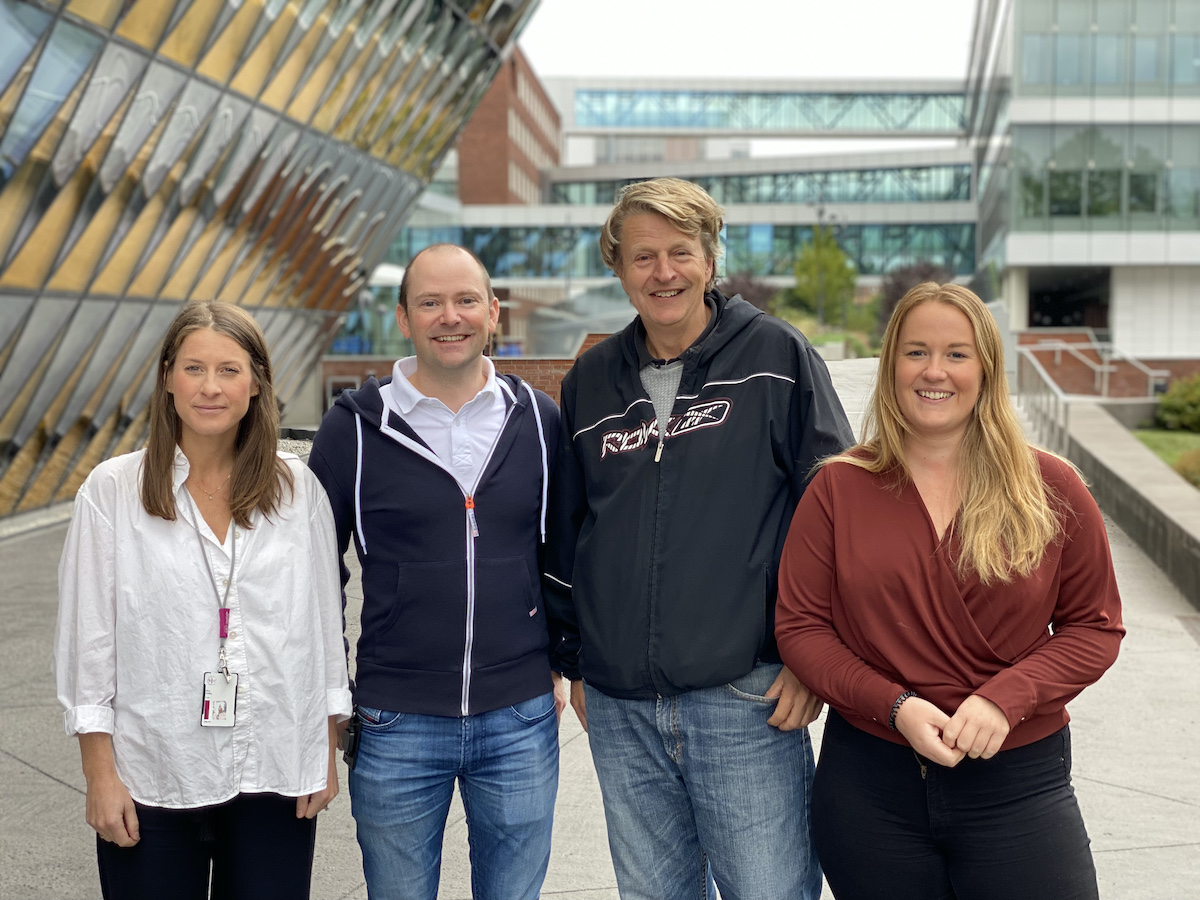Nature Biotechnology publication: New immunotherapy for cancer based on the mechanism of transplant rejection
The new treatment makes the patient’s immune cells “believe” that cancer is a transplanted organ that should be rejected. The results were published in Nature Biotechnology, one of the world's most prestigious cross-disciplinary scientific journals, on 6 December 2021.
A team of scientists at the University of Oslo, Oslo University Hospital (OUH) Radiumhospitalet and Karolinska Institutet, led by Professor Johanna Olweus, has developed a new type of immunotherapy for cancer. The new treatment makes the patient’s immune cells “believe” that cancer is a transplanted organ that should be rejected. The immune cells then attack and fight the cancer cells, thereby curing the cancer. This is made possible thanks to a new technology, developed by the research group, and genetic modification of the immune cells.
The scientists have demonstrated the efficacy of the new treatment on patient leukemia cells in cell cultures and in mouse models, and are planning a clinical trial in patients with acute leukemia.
– Our results indicate that the new therapy would be efficacious and safe in treatment of acute lymphoblastic leukemia, the most common cancer in children and young adults. This therapy could mean new hope for children and adults with an otherwise deadly disease when standard therapies fail, and thus potentially give a new future for young people who should have their whole life in front of them, Olweus comments.
The immune system “rejected” the cancer developed in transplanted organs

Professor Olweus got the idea behind the technology while she worked as a medical doctor with transplantation immunology at OUH Rikshospitalet. When an organ is transplanted from a donor to a patient, the patient must receive life-long immunosuppressive medication to avoid rejection of the organ. If medication is stopped, the patient’s immune cells, so-called T cells, will reject the transplanted organ in a short time.
Cancer can occasionally develop in the transplanted organ. Professor Olweus took notice of the fact that stopping immunosuppression in such cases usually suffices to “reject” also the cancer, even if it has metastasized outside of the organ.
– The same mechanism that is responsible for transplant rejection, thus also seemed capable of curing cancer, she says.
If T cells could be “instructed” to attack only one type of cell instead of a whole organ containing a large number of different cell types, this might provide a basis for development of a new type of immunotherapy. The research group embarked on the task. After many years, the scientists succeeded in identifying killer T cells that efficiently recognize one single target in a cell.
Genetic modification gave immune cells “eyes” to detect cancer cells
– Another challenge was to identify targets in cancer cells that separate them from other, normal, cells, Professor Olweus explains.
The T cells needed to know which cells to reject. Molecules called T cell receptors (TCR) function as “eyes” for the T cells, enabling them to “see” potential targets inside the cancer cells. This opened up for new possibilities.
– Many, many more candidate targets are available in the cell interior, as compared with the cell membrane. If we choose the right target inside the cancer cell and find a TCR capable of recognizing it, we can use this TCR to give patient T cells new “eyes” that allow them to detect cancer cells, says Dr. Muhammad Ali, first author on the study.
By exploiting the technology that he took part in developing in the group, he was able to identify TCRs recognizing an enzyme that is present at high levels in the nucleus of leukemia cancer cells.
– We genetically modified the T cells in the laboratory to equip them with the therapeutic TCR, and then infused the cells back into the blood stream of the mice. This allowed the T cells to find the leukemia cells spread in different organs of the mice, and eliminate them, explains scientist Eirini Giannakopoulou, who is shared first author with Ali on the study.

Crucial contributions from Karolinska Institutet
The present study was conducted in an international collaboration, and Olweus emphasises instrumental contributions from Assistant Professor Petter S. Woll and Professor Sten Eirik Jacobsen and their teams at the Department of Medicine, Huddinge, Karolinska Institutet, in particular doctoral students Madeleine Lehander and Stina Virding Culleton. They tested efficacy of the treatment in mice transplanted with leukemia cells from patients, and safety in a mouse model with normal human blood cell formation.
– In addition to the dramatic efficacy, we also saw no negative effect on healthy B and T cells or on the development of new blood cells, which suggests that the treatment can be safe, Petter S. Woll adds.
The researchers in Oslo and at Karolinska Institutet are now planning to conduct laboratory and animal studies to test the method on more cancer types.

Will test the treatment in patients with leukemia
– Together with clinicians at the Department of Pediatrics and Oncology and the Department of Hematology at OUH we are currently planning for a clinical trial to test the treatment in patients with acute leukemia. The patient T cells will be genetically modified in the recently established Center for Advanced Cell and Gene therapy (ACT Center) at OUH. The trial will include patients for whom there is currently no curative therapy, says Professor Olweus.
In addition, the research group will use the same technology to develop therapeutic TCRs also for other cancer types.
Links:
The Nature Biotechnology article, published 06 December 2021:
T cells targeted to TdT kill leukemic lymphoblasts while sparing normal lymphocytes
Muhammad Ali, Eirini Giannakopoulou, Yingqian Li, Madeleine Lehander, Stina Virding Culleton, Weiwen Yang, Cathrine Knetter, Mete Can Odabasi, Ravi Chand Bollineni, Xinbo Yang, Zsofia Foldvari, Maxi-Lu Böschen, Eli Taraldsrud, Erlend Strønen, Mireille Toebes, Amy Hillen, Stefania Mazzi, Arnoud H. de Ru, George M. C. Janssen, Arne Kolstad, Geir Erland Tjønnfjord, Benedicte A. Lie, Marieke Griffioen, Sören Lehmann, Liv Toril Osnes, Jochen Buechner, K. Christopher Garcia, Ton N. Schumacher, Peter A. van Veelen, Matthias Leisegang, Sten Eirik W. Jacobsen, Petter Woll & Johanna Olweus Show fewer authors
Nature Biotechnology (2021)
Online 6 december, 2021, doi: 10.1038/s41587-021-01089-x
News articles from various outlets:
From the Norwegian Broadcasting Corporation (NRK):
Mulig kur mot akutt leukemi: – Jeg begynte å hoppe av glede da jeg så resultatene
From forskning.no:
Forskere har funnet en mulig kur mot akutt leukemi. Nå skal den testes ut på mennesker
From uio.no:
Ny immunterapi for kreft basert på mekanismen for transplantasjonsavvisning
From ki.se (in Swedish):
Ny sorts immunterapi mot leukemi upptäckt | Karolinska Institutet Nyheter
Home page of Johanna Olweus Experimental Immunotherapy Group
